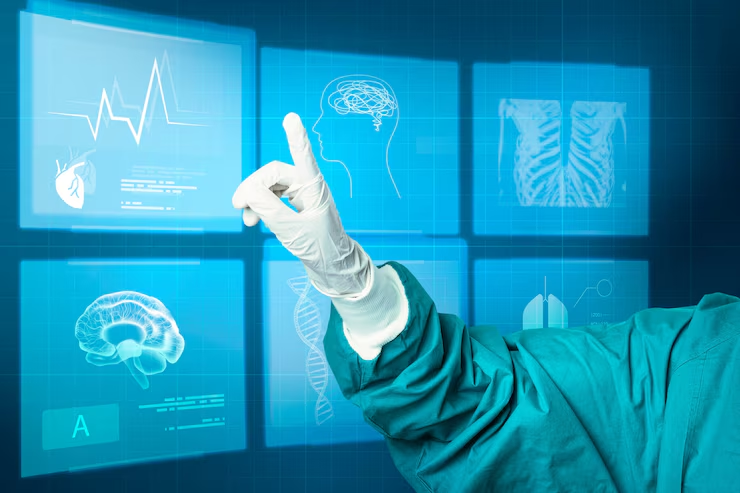At Red Connector, we focus on cutting-edge technology, and one of the most impactful advancements is how AI innovations transforming healthcare are reshaping the industry. Artificial intelligence is improving medical diagnoses, treatment accuracy, and patient care, making healthcare more accessible and efficient.
As AI innovations transforming healthcare continue to grow, they offer remarkable opportunities to enhance the quality of care. AI can analyze vast amounts of data, assisting healthcare professionals in making informed decisions faster and more accurately, ultimately saving lives.
Related:
Key Areas of AI Innovations in Healthcare
AI is revolutionizing healthcare by providing advanced tools for more precise medical practices. From diagnostic algorithms to personalized medicine, AI helps optimize patient outcomes by harnessing data in new and exciting ways.
AI-Powered Diagnostic Tools
One of the most significant ways AI innovations transforming healthcare is through diagnostic tools. Machine learning algorithms can now assist doctors in detecting diseases like cancer earlier by analyzing medical images more accurately than ever before. These tools enhance the ability to catch diseases in their early stages, improving recovery rates.
Personalized Medicine and Treatment
AI innovations transforming healthcare have also led to more personalized treatment plans. Using AI, healthcare professionals can now tailor medications and therapies based on a patient’s unique genetic makeup. This precision in treatment ensures better effectiveness and fewer side effects, making healthcare more patient-centered.
AI in Robotic Surgery
Robotic surgery has become a game-changer thanks to AI innovations transforming healthcare. These AI-powered robots can perform surgeries with enhanced precision and minimal invasiveness, reducing recovery times for patients. Surgeons benefit from greater accuracy, and patients experience less pain post-surgery.
Streamlining Administrative Processes
AI is not just about patient care; it’s also streamlining healthcare administration. AI tools help with scheduling, patient intake, and even billing. By automating routine administrative tasks, healthcare providers can focus more on patient care and less on paperwork, which ultimately improves the overall healthcare experience.
AI and Predictive Analytics for Public Health
AI innovations transforming healthcare extend to public health as well. Predictive analytics powered by AI can track disease outbreaks, forecast medical supply needs, and even assist in planning healthcare infrastructure. These innovations help healthcare systems prepare for future challenges, ensuring a better-equipped response to crises.
FAQs
Q1. How is AI improving healthcare diagnosis?
A: AI technologies like machine learning can analyze medical images faster and more accurately, helping doctors detect conditions such as cancer early, leading to better outcomes.
Q2. What is personalized medicine in healthcare?
A: Personalized medicine uses AI to tailor treatments to an individual’s genetic makeup, ensuring that each patient gets the most effective and least harmful treatment.
Q3. How does AI improve patient care in hospitals?
A: AI helps streamline administrative processes, allowing medical staff to focus more on patient care. It also aids in real-time decision-making, improving overall healthcare efficiency.
Q4. Can AI be used in robotic surgeries?
A: Yes, AI innovations have made robotic surgeries more precise and less invasive, reducing recovery times and improving patient safety during surgical procedures.
Q5. What role does AI play in public health?
A: AI innovations can predict disease outbreaks and monitor health trends, allowing for better preparedness in public health, from anticipating medical supply needs to managing patient care during pandemics.
Conclusion
AI innovations transforming healthcare are bringing profound changes to the industry, making patient care more personalized, efficient, and accessible. From diagnostics to robotic surgeries and predictive analytics, the future of healthcare looks brighter and more innovative than ever before. With continuous advancements in AI, we are on the brink of a healthcare revolution that will make treatment more effective, equitable, and life-saving.


